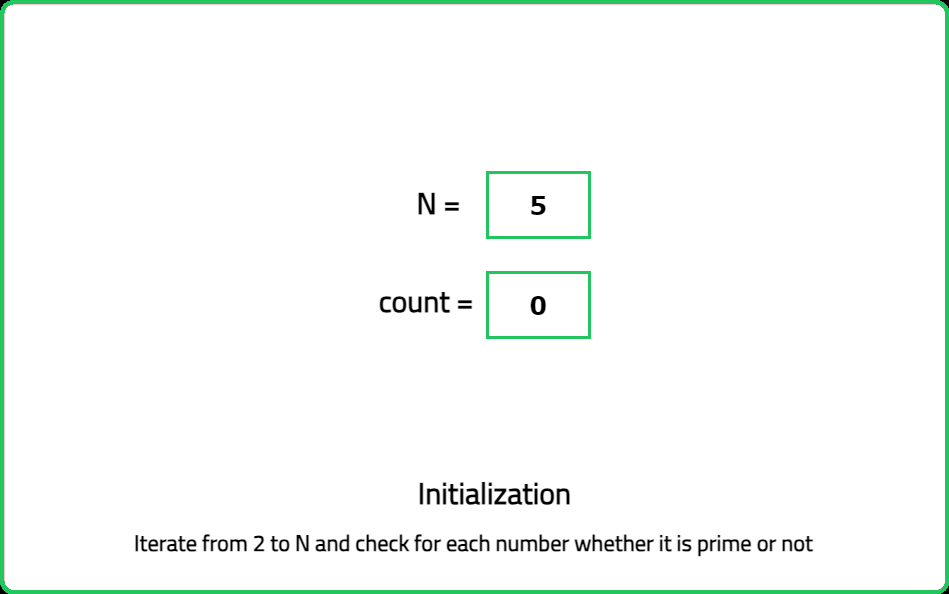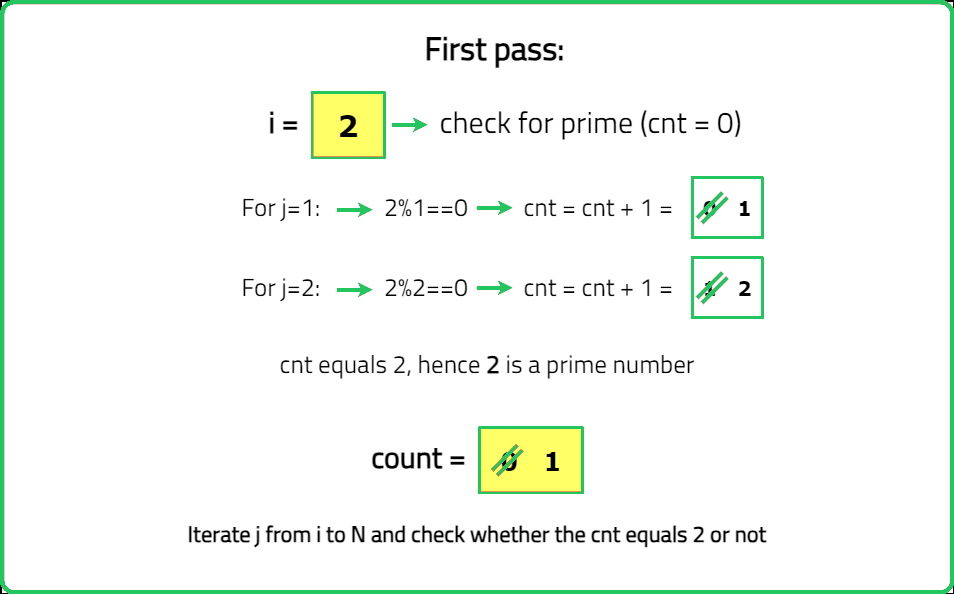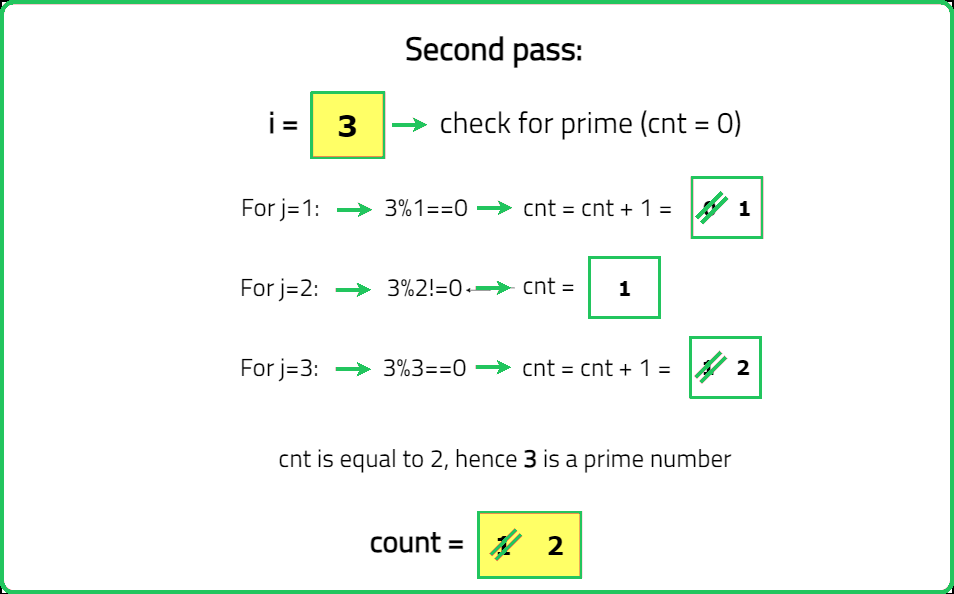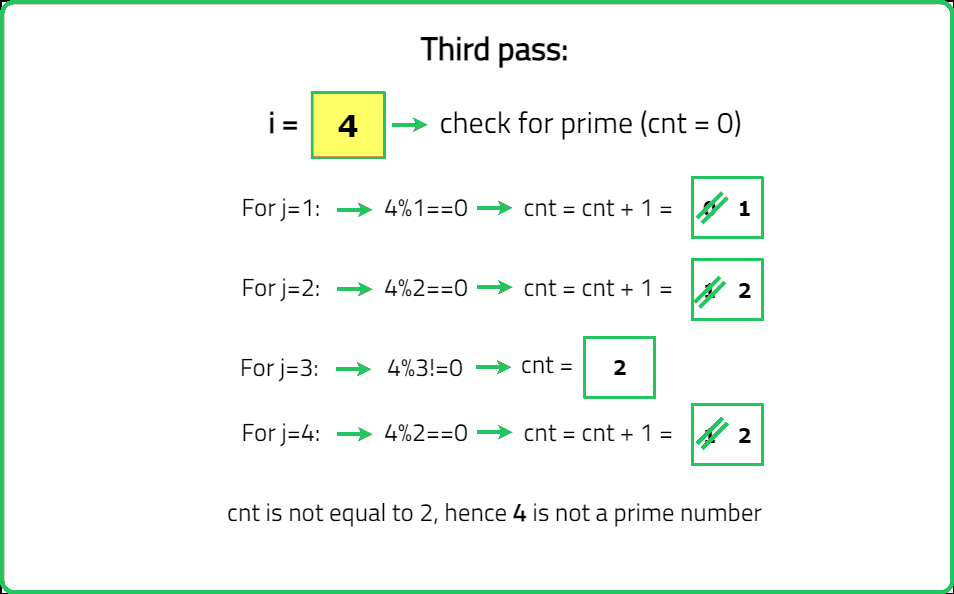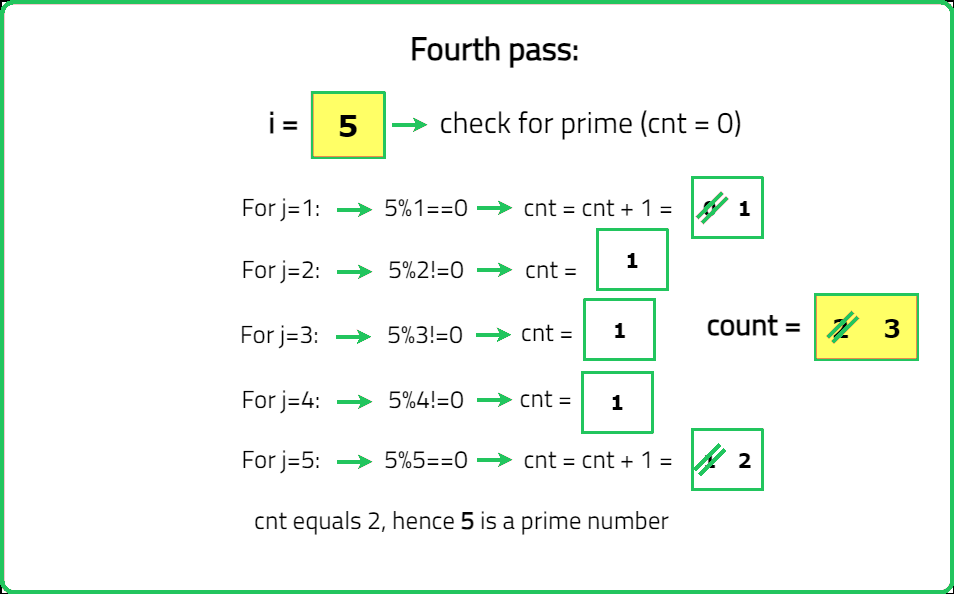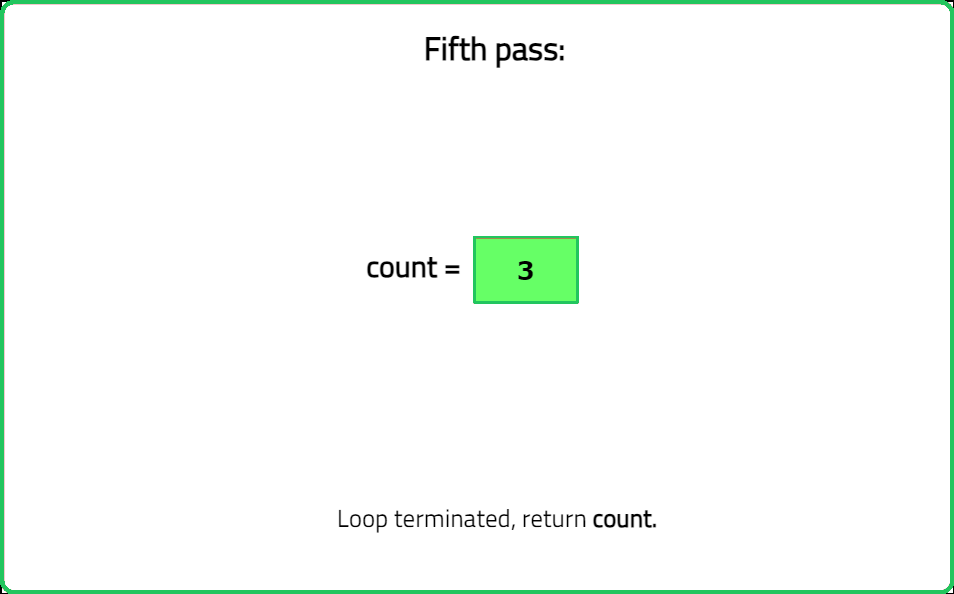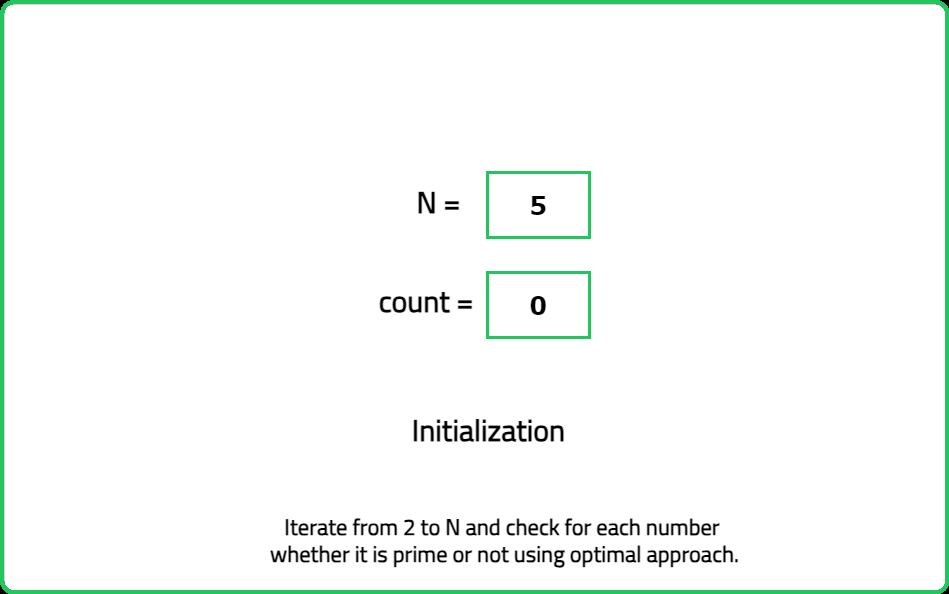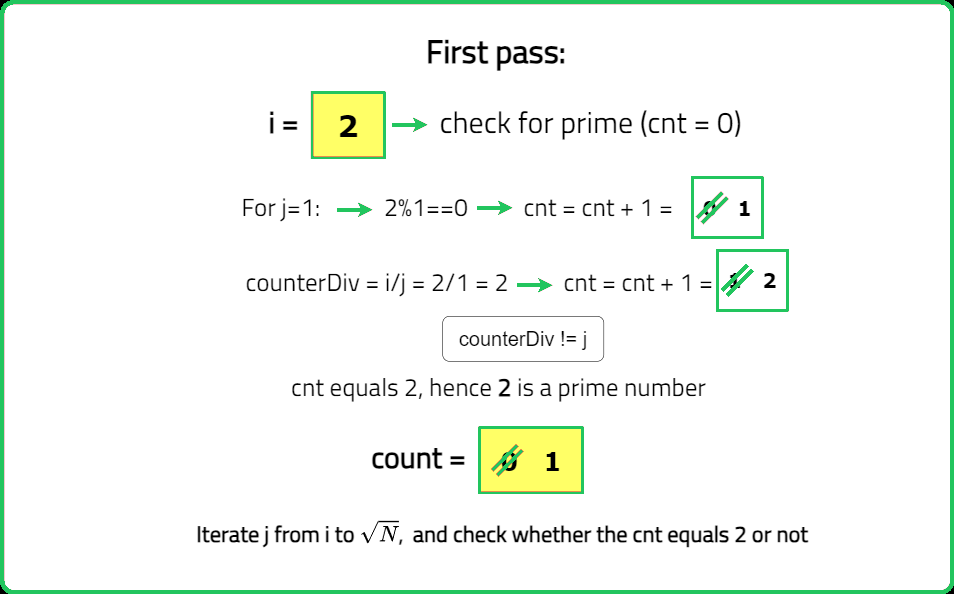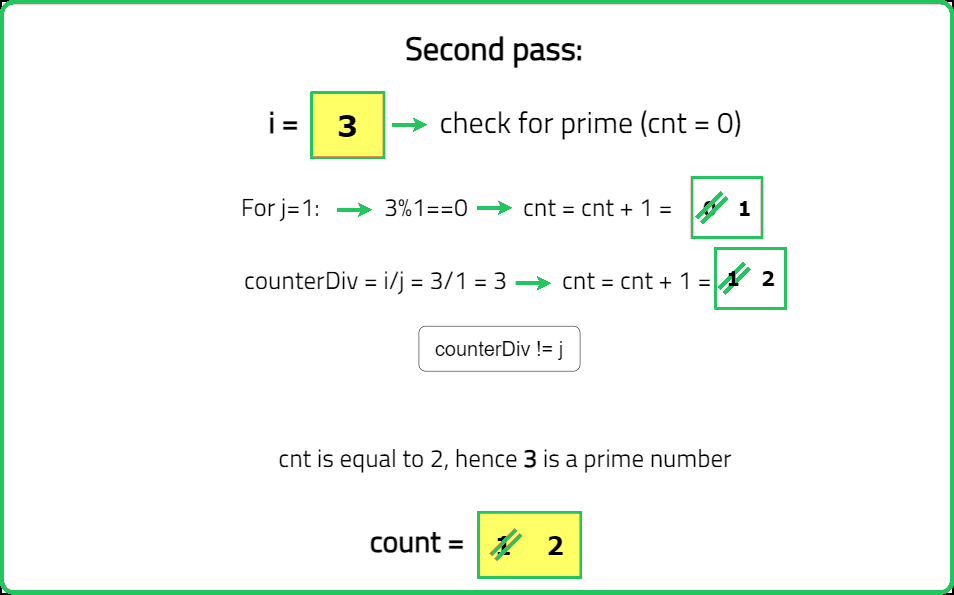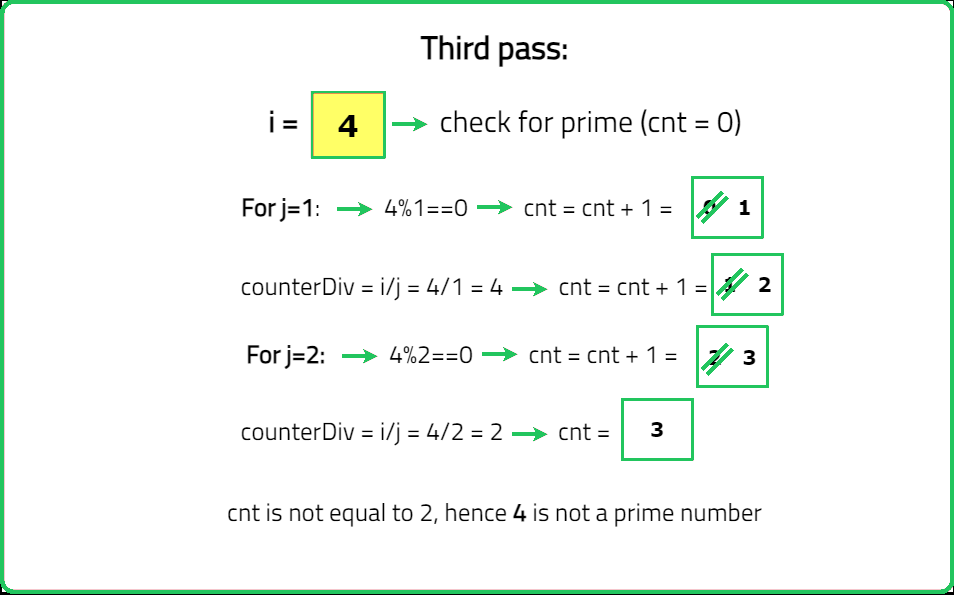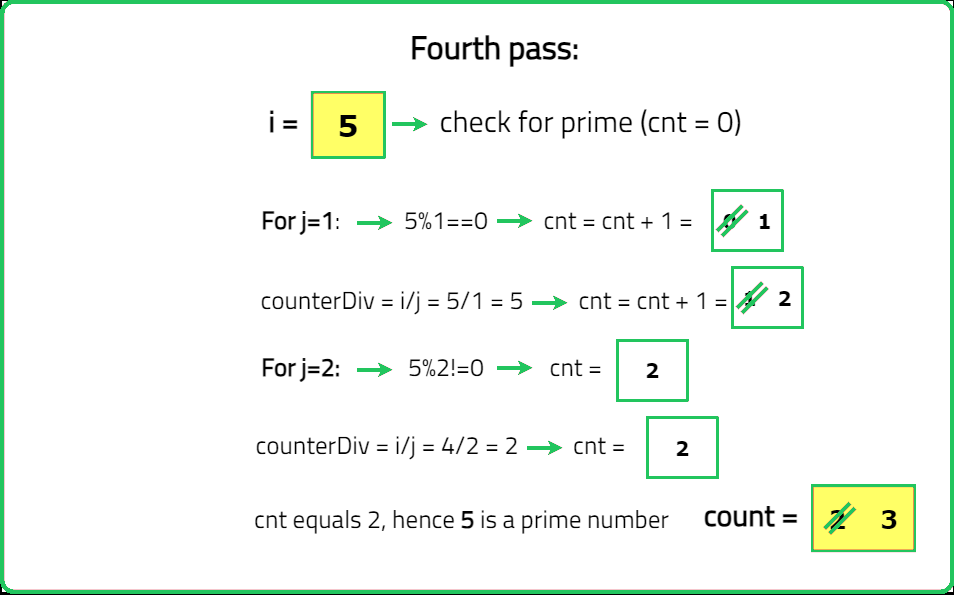Count of prime numbers till N
Beginner Problems
Basic Maths
Easy
- Prime number generation and recognition is an important concept in cryptographic algorithms, which serve as a basis for secure communication in the digital world
- For example, RSA algorithm, which is widely used for secure data transmission, is based on the principle of factoring large prime numbers
- The difficulty in factoring the product of two large prime numbers ensures that RSA is secure
- Therefore, a function that can efficiently generate or identify prime numbers can contribute to the efficiency and strength of these algorithms
You are given an integer n. You need to find out the number of prime numbers in the range [1, n] (inclusive). Return the number of prime numbers in the range.
A prime number is a number which has no divisors except, 1 and itself.
Examples:
Input: n = 6
Output: 3
Explanation: Prime numbers in the range [1, 6] are 2, 3, 5.
Input: n = 10
Output: 4
Explanation: Prime numbers in the range [1, 10] are 2, 3, 5, 7.
Input: n = 20
Constraints
- 2 <= n <= 1000
Company Tags
TCS
Cognizant
Accenture
Infosys
Capgemini
Wipro
IBM
HCL
Tech Mahindra
MindTree
